(Editor’s note: The Offender Mentor Certification Program at CSP-Los Angeles County graduated the first group of Level 4 participants.)
First Level 4 cohort a step closer to becoming AOD counselors
It was fitting that the hills surrounding Lancaster’s multi-mission state prison were covered in the unfamiliar gleam of fresh snow on Feb. 28.
Inside the California State Prison, Los Angeles County, (LAC) “C” Yard visiting area, another tempest was still brewing. Celebrated by attending family and staff, 20 men graduated the Offender Mentor Certification Program (OMCP).
The self-identified Scarred Team of Recovering Men Inspiring New Generations (STORMING for short) cohort is the first group of Level 4 men to start and graduate an OMCP course operated by the Division of Rehabilitative Programs (DRP). After COVID delays and other challenges, their resolve prompted the group to embrace the climate that rocked Southern California before their ceremony.
The cohort includes four paroled mentors who were released before the Feb. 28 ceremony. Graduates can now complete supervised internship hours to earn an AOD certification from the California Association for Alcohol/Drug Educators. It’s an achievement recognized by the California Department of Health Care Services.
AOD certificates can lead to outside employment

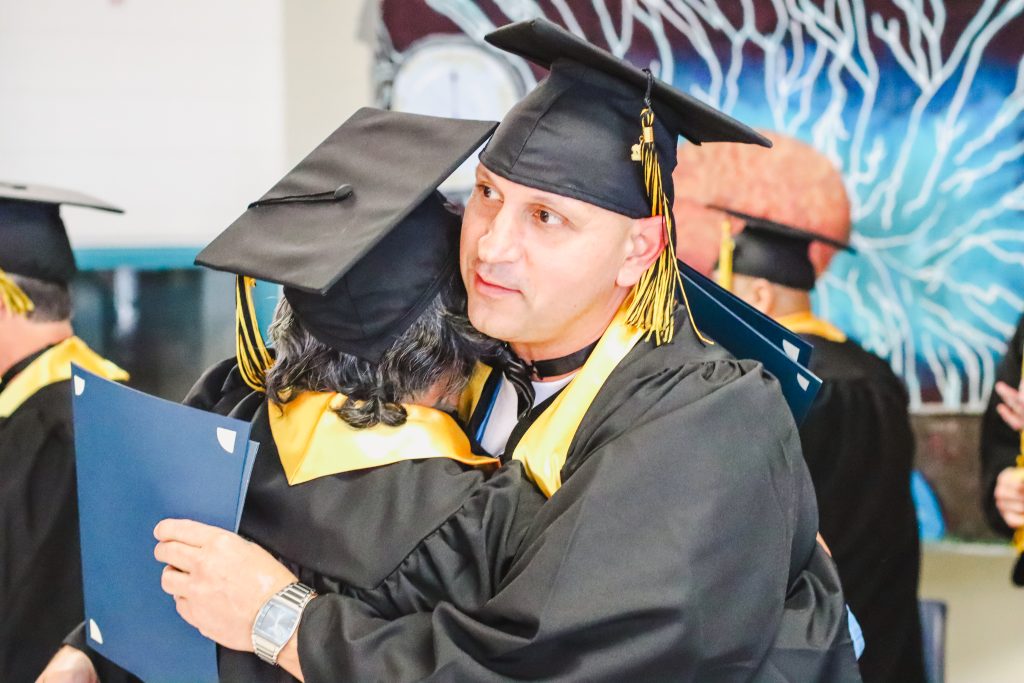
It’s also the kind of document you pop into a frame and more importantly, use to obtain paid jobs inside and outside of prison.
Mentors assist DRP’s Cognitive Behavioral Interventions (CBI) contract staff in co-facilitating intensive substance use disorder treatment groups. Inside CBI classes, they provide guidance to participants and peer-to-peer support of understanding and utilizing the course curriculum. OMCP graduates also facilitate other types of programs while they are incarcerated.
Once released, graduates are often hired by nonprofits/community-based programs and even return to operate CDCR programs. Fourteen counselors who released after earning certifications are now back at CDCR, hired as contracted staff, facilitating CBI.
It’s a challenging path, but one that the STORMING cohort embraced. It’s why LAC, DRP and Options Recovery Services staff, along with Charles Navarro from the office of Rep. Mike Garcia (California’s 27th District), earnestly recognized the group for their significant achievements.
Words of encouragement
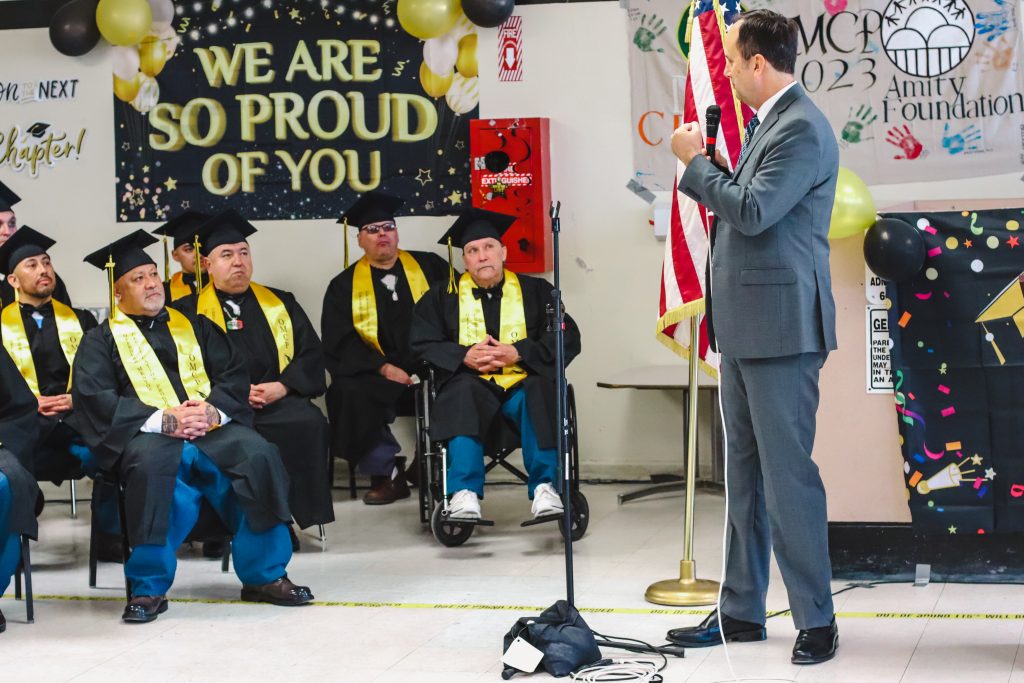
“I can tell you there is nothing more important in the entire state of California today than this graduation,” DRP Director Brant Choate said. “When you are counseling someone and helping them to overcome addictions, you are changing their lives, their families’ lives, and all the peers around are watching, and it’s a big deal. We can’t do it without you.”
“We appreciate your hard work, and we appreciate your dedication,” Damion J. Williams, LAC’s Chief Deputy Warden (A) added, addressing the STORMING cohort. “To the staff members for this community, we appreciate your energy and everything you all do.”
‘Secrets, hurts, fears and shame’
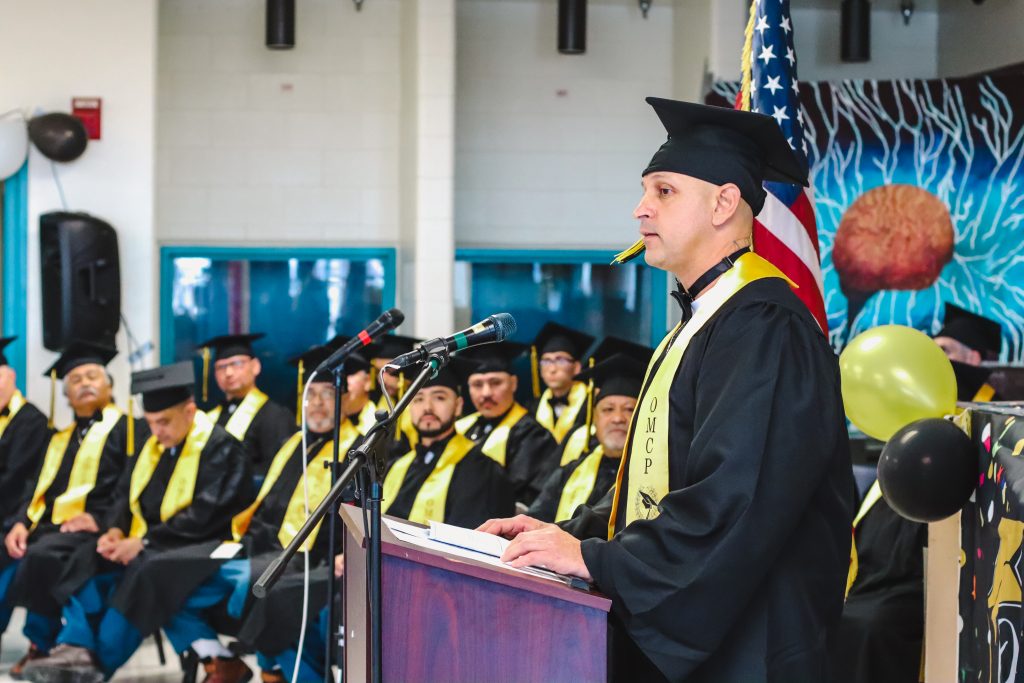
Ivan Stine, a graduated mentor, also spoke at the ceremony. He practiced that moment solemnly in another room, while awaiting the opening march, measuring his pace and tone.
“This program was the most difficult and rewarding experience of my life,” Stine said. “Each and every member of this cohort courageously opened up their heart and exposed their deepest secrets, hurts, fears and shame.”
“This honest vulnerability allowed an inner release of truth, power and beauty that’s sparked a rebirth within our core natures.”
He finished his rehearsal with a deep breath, seemingly emboldened by familiarity with his own writing.
“You got this,” he was told by staff.
“Only if I don’t look at certain people in the room,” he replied. “If I see my daughters, I don’t think I can keep it together.”
Pressures of speaking in front of attending family, peers and staff did little to shake Stine and the other graduates, all who presented aligned OMCP themes. The boldness that lifted these men to achieve a critical step toward becoming certified AOD counselors also drove them to make history.
By Ike Dodson, Communications Manager, Information Officer II
California Correctional Health Care Services (CCHCS)
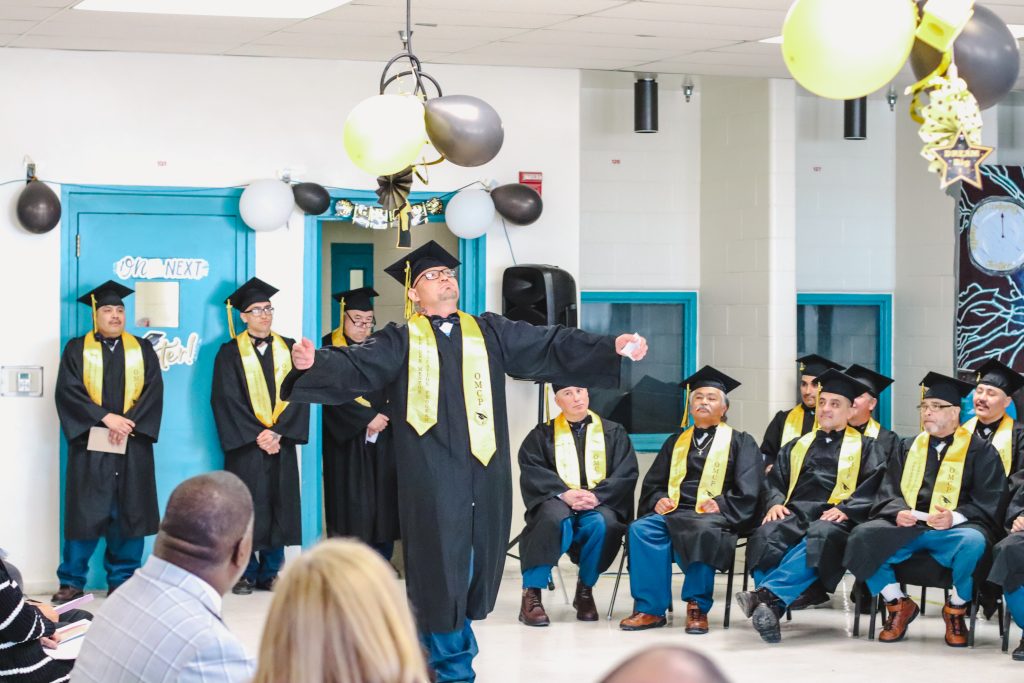
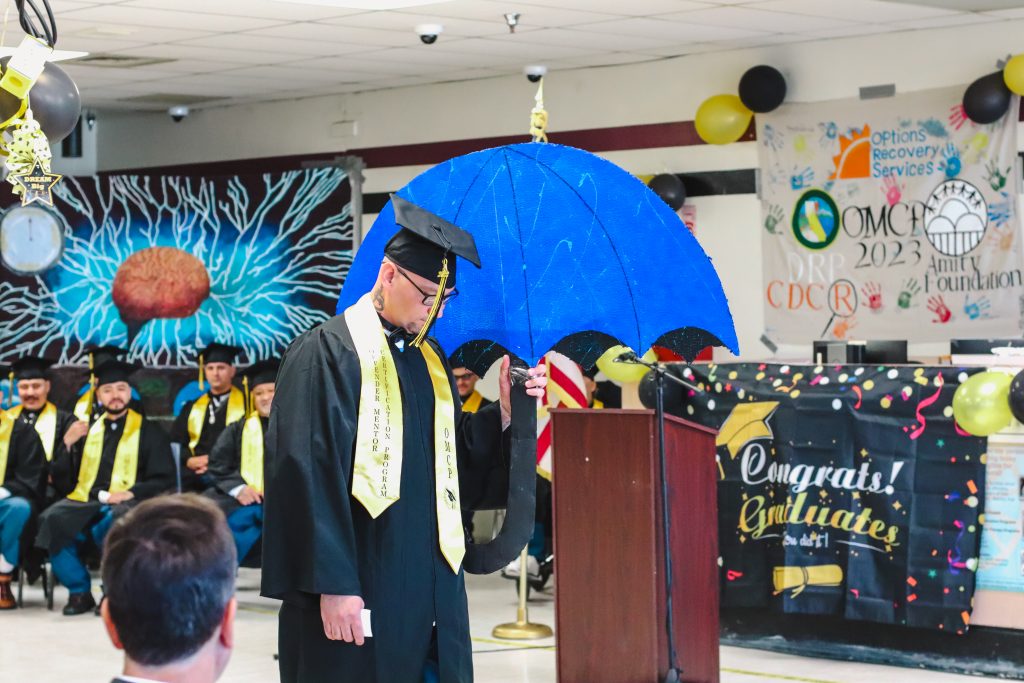
For media inquiries, e-mail the Office of Public & Employee Communications.
Read more rehabilitation stories.
Follow CDCR on YouTube, Facebook, X (formerly Twitter). Listen to the CDCR Unlocked podcast.
